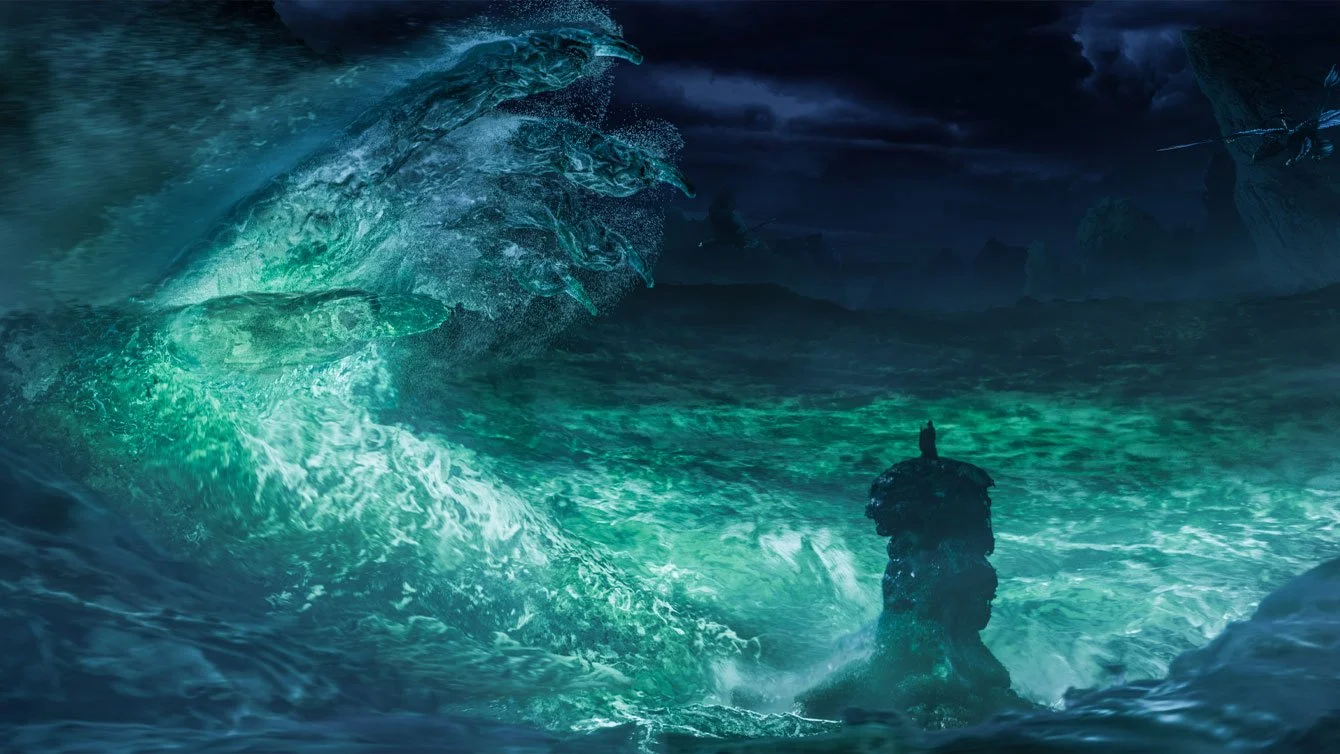IR Film Review: CREATION OF THE GODS I - KINGDOM OF STORMS [Well Go USA]
Creating an epic that can balance mythical and a sense of traditionalism, especially out of the Chinese market without falling into melodrama is a specific balance. This of course has to do with the nature of translation but when a sense of visual style and storytelling find a balance, it can really work. That is why when watching the credits of "Creation Of The Gods I: Kingdom Of Storms", it was interesting to see some international VFX work as well as some story consulting of both Barrie Osbourne ("Lord Of The Rings") and James Schaeumus (of Focus Features fame). One can feel certain small touches on archetypes while still swirled in an essence of magic realism. While a small part likely of the collaboration, it is felt in understanding a wider audience without negating the core.
Ang Lee once found this balance in "Crouching Tiger, Hidden Dragon". This film however is so exponentially larger in its scope and scale but what is quite clear and, at times, riveting is the familial contexts of fathers and son and the sense of loyalty as well as ambition within those parameters that cause strife but also transcendence. The film does an interesting play which is the separation and understanding of the power base. This first film (of an already fully filmed trilogy) talks about the basis of power and its corruption but then also the intercession of a higher power (or concience as represented by the gods) to lead mortals to a better way of living. Set during the Sheng Dynasty, the main conflict throughout this story is the ascension to power of Shin Zou, the King Of Sheng, and his manipulation either by his own ambition or a demon that seeks (and succeeds at times) to control him.
At the same time there are two men, each of different fathers but with different beliefs in the characters of Ji Fa, the son of one of the dukes of the kingdom and Yin Jaio, the crown prince and eventual heir to the throne. The bios of each speak to a conflict down the road but here the baseline is more about class versus ego (and then actual talent). The way the conflict is built is not overcomplicated but (like "Lord Of The Rings") is dense in many of its progressions in well written wats. The addition of gods but specifically a trinity of emmisaries (including one who straddles the line between mortal and man --- as an old man), creates a sense of balance and humor which undeniably helps the film. There are darker concepts at play here too involving manipulation, psychological conditioning and sheer brutality (though it is primarily offscreen). However, their presence underlies many of the key narrative scenes.
The bigger set pieces on the battlefield are quite large but it is more the scenes inside the palace of intrigue and the different energies battling against each other that are the most dynamic. The sense of design within the film is beautiful but the motivations of the characters seem a lot crisper (and maybe more recognizable to Western audiences). This is why it works perhaps better universally perhaps than other films to come out of the region in recent years. The reality is that the Chinese film industry in terms of production is rivaling Hollywood now in many ways (if not surpassing). The question revolves in IP but with China's main audience in Asia, there is a breathe of mythology and stories that have been told over ages that technology is just now having the ability to visualize. The story structure, as shown here, is becoming more dynamic and the acting in many ways, comparable to some esseences of Western acting methods, subtler than they ever have before. As a result, the bombast here feels warranted and inherently cinematic, especially in the contexts of power, without having to resort simply to set pieces with just a mechanical ending. The reprecussions of these stories push forward to design society and which way it moves forward. A-
By Tim Wassberg




